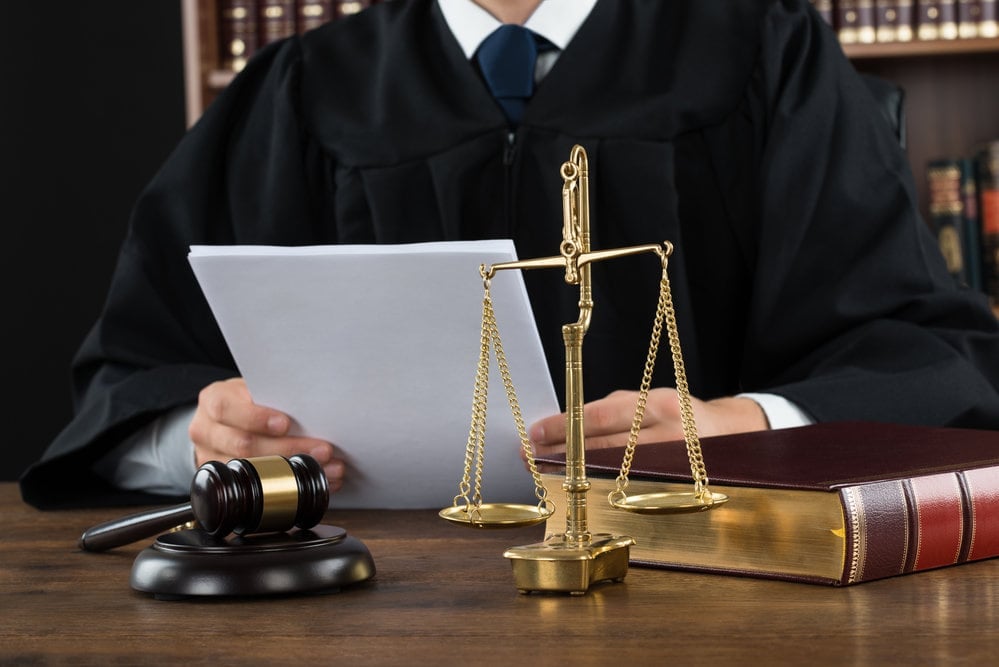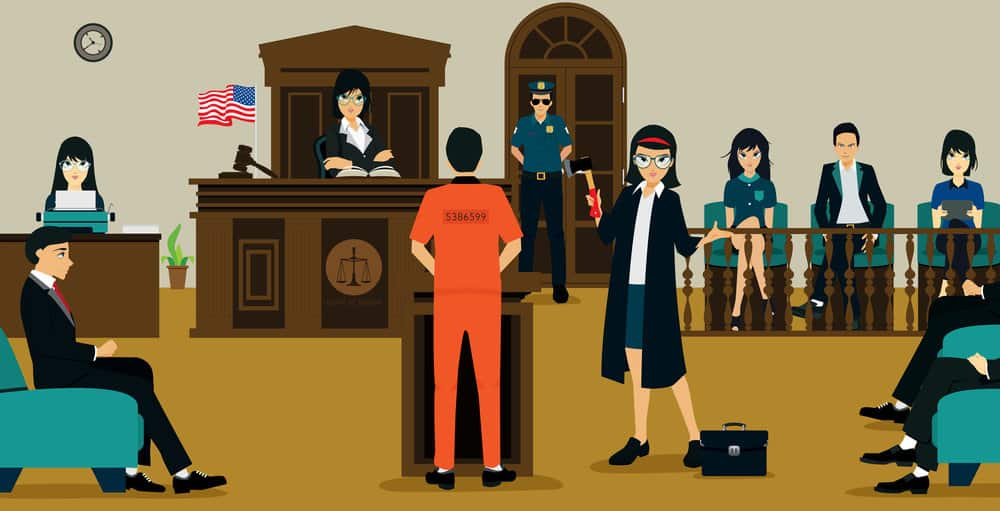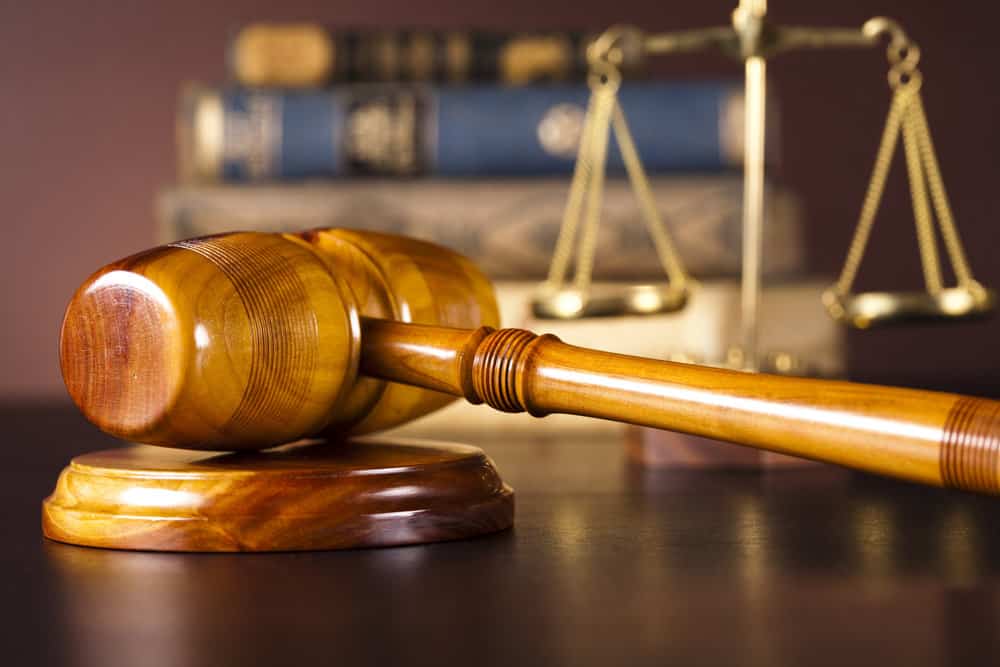In legal proceedings, the roles of a judge and a jury are distinct yet complementary. Judges oversee cases, make rulings on legal matters, and instruct juries on the law while juries listen to the evidence and deliberate to reach a verdict. But what happens when a judge disagrees with a jury’s decision? Can a judge overrule a jury?
While the jury’s verdict carries significant weight, there are certain circumstances when a judge can overrule their decision, such as when the judge believes the verdict does not align with the evidence presented in court. The power of a judge to overrule a jury needs to be exercised cautiously, as it can affect not only the outcome of a specific case but also perceptions of the justice system’s integrity.
Key Takeaways
- A judge can overrule a jury in certain circumstances when the verdict does not align with the evidence
- The decision to overrule a jury should be made cautiously, as it can impact the justice system’s integrity
- Factors such as the evidence, legal representation, and the specific legal matter all play a role in determining if a judge can overrule a jury’s verdict
Understanding the Roles of Judge and Jury
Role of a Jury
A jury plays a critical role in both criminal and civil trials. In criminal cases, the jury is responsible for determining if the defendant is guilty or not guilty based on the evidence and testimony presented by both the prosecution and the defense. The jury’s decision, known as a verdict, must be unanimous in federal court.
In civil trials, the jury serves a similar purpose by determining the outcome of a dispute between the plaintiff and defendant. Civil jury trials often involve monetary compensation or some form of relief for the plaintiff, and the jury’s role is to decide which party should be awarded and to what extent.
The concept of a trial by jury is deeply rooted in American law, with experts often pointing to the 5th Amendment as one of its origins. Trial by jury is seen as a fundamental right of every citizen, ensuring that a group of their peers judges the accused fairly.
Role of a Judge
In contrast, a judge plays a different but equally important part in a trial. They facilitate the court proceedings, ensuring that both parties adhere to the rules of evidence and courtroom etiquette. Judges are responsible for maintaining order and decorum during the trial and have the authority to make rulings on procedural and evidentiary matters.
Additionally, the judge is tasked with instructing the jury on the relevant laws applicable to the case. The jury must receive accurate legal guidance to make an informed decision aligned with the law. In some instances involving complex legal issues, the judge may also provide clarification or explanations to the jury.
In a trial by jury, the judge often plays a supervisory role while the jury makes the key decision. Their duties include ensuring that the trial process remains fair and impartial and follows established legal procedures. They thoroughly consider the facts and arguments before them, making legal interpretations that greatly contribute to the trial’s outcome.
When Can a Judge Overrule a Jury?
There are several circumstances in which a judge may overrule a jury’s verdict. This section explores three primary instances when this can happen: Judgment Notwithstanding the Verdict (JNOV), Judgment of Acquittal, and Motion for a New Trial.
Judgment Notwithstanding the Verdict (JNOV)
A judge may overturn a jury’s verdict by granting a Judgment Notwithstanding the Verdict (JNOV). This legal process occurs when a judge determines that the jury’s decision is unsupported by the evidence presented during the trial. In this situation, the judge can override the jury and render a decision that better aligns with the law and evidence.
Judgment of Acquittal
Another instance in which a judge can overrule a jury is by issuing a Judgment of Acquittal. This procedure occurs when the judge believes the prosecution failed to provide enough evidence to support a guilty verdict. The judge intervenes and acquits the defendant, dismissing the jury’s decision that the defendant is guilty. As a result, the person on trial will not face any further legal repercussions related to the charges.
Motion for a New Trial
Lastly, a judge may overrule a jury’s verdict by granting a Motion for a New Trial. In this situation, the judge determines that the original trial was flawed, such as a procedural error, newly discovered evidence, or juror misconduct. By ordering a new trial, both sides can present their cases again to resolve any inconsistencies or issues that arose during the first trial.
Factors Influencing a Judge’s Decision to Overrule
Insufficient Evidence
In some cases, a judge may overrule a jury due to insufficient evidence presented during the trial against the defendant. This typically occurs when the evidence does not meet the required legal standard to prove guilt beyond a reasonable doubt. Even if a jury has found the defendant guilty based on the evidence presented, a judge may grant a motion for Judgment, Notwithstanding the Verdict (JNOV) if it appears that no reasonable jury could have reached such a verdict.
It’s crucial for the integrity of criminal cases that convictions are based on solid evidence that removes any reasonable doubt. American courts recognize the importance of this legal principle, and presiding judges are responsible for ensuring a fair and just trial.
Mistrial and Prejudice
Another factor that may lead to a judge overruling a jury is the presence of prejudice regarding the defendant’s case. Prejudice may arise from various sources, such as interaction between jurors and attorneys or unfair external influences that impact jurors’ decision-making. In such situations, a presiding judge may declare a mistrial and set aside the jury’s verdict.
The Federal Rules of Criminal Procedure protect a defendant’s right to a fair trial, and identifying prejudice is essential to uphold these principles. Judges have a crucial role in preserving the defendant’s constitutional rights within the courtroom and ensuring a fair trial process.
Double Jeopardy and Constitutional Rights
Double jeopardy protections are also significant when a judge considers overruling a jury. This principle protects a defendant’s constitutional rights by preventing them from being tried twice for the same crime, particularly if a not guilty verdict has been reached. Should a judge have concerns that a jury’s decision goes against these protections, they may step in to overrule the verdict.
Understanding the factors influencing a judge’s decision to overrule a jury is essential, as they ultimately ensure that justice prevails. Judges play a crucial role in maintaining the integrity of the American legal system by weighing the evidence, considering potential prejudice, and upholding constitutional rights.
Impact of a Judge Overruling a Jury’s Verdict
Civil Cases Consequences
In civil cases, a judge may overturn a jury’s verdict when they believe that the jury’s decision is against the weight of the evidence or an error in the legal interpretation occurred. This usually happens when the award provided by the jury for damages seems excessive or when a hung jury cannot reach a unanimous decision.
When a judge overrules a jury’s verdict, it can affect the parties involved differently. For example, suppose a plaintiff in a personal injury trial receives a large compensatory damages award for medical expenses and pain and suffering. In that case, the defendant (typically an employer or individual) might feel that the amount is unjustified. The judge can reduce the damages or order a new trial.
Criminal Cases Consequences
In criminal cases, the consequences of a judge overruling a jury’s verdict can be more severe. A jury’s guilty or not guilty verdict is central to the administration of justice, and the judge must carefully consider the implications of overturning it.
The Fifth Amendment to the United States Constitution protects a defendant from being tried twice for the same offense (double jeopardy). However, if a judge overrules a guilty verdict, the prosecution may appeal, potentially leading to a retrial. A judge may also overturn a not guilty verdict, though this is less common, as the prosecution typically cannot appeal such decisions.
If a judge decides to overturn a guilty verdict in a criminal case, it could result in the defendant receiving a lesser sentence, an acquittal, or a new trial. Sometimes, an overturned guilty verdict may lead to public outcry and further judicial scrutiny.
It is crucial to remember that judges are responsible for ensuring that justice is served and the legal process is upheld. While judges have the power to overrule a jury’s verdict in civil and criminal cases, this authority is exercised with caution and only in situations where the spirit of justice is upheld.
Seeking Legal Advice and Representation
Role of a Criminal Defense Attorney
The criminal defense attorney plays a vital role in representing the accused party in criminal cases. They will focus on protecting their client’s rights and developing a defense strategy to challenge the prosecution’s case. A competent attorney aims to achieve the best possible outcome for their client, minimizing potential liability and ultimately working toward a resolution.
Additionally, criminal defense attorneys help clients navigate the complex legal system and advise them about possible legal strategies, plea bargains, and trial options. They may also assist in negotiating compensation or settlements.
Consulting With Civil Attorneys
For civil cases, the parties involved should consult with civil attorneys who specialize in handling such matters. These attorneys can provide expert advice and representation for cases involving potential liability or disputes over compensation.
Civil attorneys have the experience to help their clients understand the legal options and assist in making informed decisions about how to proceed. They can gather the necessary evidence, negotiate settlements, or represent their clients in court. They will work towards a resolution that is in the best interest of their clients.
In summary, seeking legal advice and representation is crucial in criminal and civil cases. Competent attorneys can help parties understand their legal rights while working toward a favorable resolution.
Frequently Asked Questions
How often do judges overturn jury trials?
It is relatively rare for a judge to overrule the jury’s decision since their role is to determine the facts based on the evidence presented, while the judge’s role is to ensure fairness and adherence to legal procedure.
Can a criminal trial judge overrule a jury’s guilty verdict?
Yes, a judge may overrule a jury’s guilty verdict if it is found that there was insufficient evidence to support the conviction. This is known as a judicial acquittal or a judgment of acquittal. However, a judge cannot overrule a jury’s not-guilty verdict.
Does a civil case Judge have the power to overrule a jury’s verdict?
Yes, in civil cases, a judge has the power to overrule a jury’s verdict if it is determined that the verdict is against the weight of the evidence or if a legal error has occurred that influenced the verdict. This is known as a judgment notwithstanding the verdict or a judgment as a matter of law.
Are judges allowed to override jury recommendations in death penalty cases?
In some states, judges can override jury recommendations for either a life sentence or the death penalty in death penalty cases. However, this practice has faced legal challenges and has become less frequent in recent years.
Does judicial overruling vary by state?
Yes, the ability of a judge to overrule a jury’s decision varies by state and jurisdiction. Some states grant greater discretion to judges in certain situations, while others have stricter limitations on judicial overruling.
What is the difference between a judge’s power and that of a jury?
Both judges and juries hold significant power within the legal system. Juries are responsible for determining the facts and deciding based on the evidence presented. Judges must oversee the trial and can overrule jury decisions in specific circumstances, but generally, they respect the jury’s role in determining the verdict.





